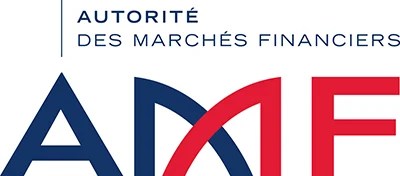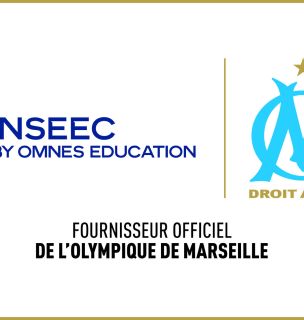There is a wide range of opportunities in the industry for candidates with dual marketing and sales profiles.
Why choose the MSc in Taxation, Business Law, Consulting & Business Management program ?
Careers related to business law and taxation have undergone a major transformation: the internationalization of trade, the dominance of the Anglo-Saxon business model, and a strong demand for versatile profiles. Moreover, the growing importance of financial factors in decision-making now requires legal professionals to adapt to business management issues.
This program aims to provide learners with dual expertise—not only in legal and tax aspects but also in financial matters. Beyond the essential theoretical knowledge, the training is designed to be highly practical, equipping students with the tools needed to integrate into any type of organization.
Upon completing this program, most graduates pursue careers in law related to legal and tax consulting, corporate legal counsel positions, or professions in accounting expertise.
Professional label

Les étudiants INSEEC passent la certification AMF (Autorité des Marchés Financiers) dans le cadre de leur MSc Fiscalité, Droit des Affaires, Conseil & Gestion d’Entreprise.

A diploma completed in 1 or 2 years to become an expert in corporate law and taxation
- First year MSc course hours : 441 hours
- Second year MSc course hours : 441 hours
Program objectives
The objectives at the end of the program are to be able to :
- Manage and control the company’s performance
- Conduct and lead internal control and auditing within the company or for a client
- Advise and provide information on taxation and business law
- Lead professional teams during audit missions and performance analysis
How to apply to the MSc Taxation, Business Law, Consulting & Management at INSEEC ?
The required prerequisites
The conditions for accessing the certification system (excluding VAE) are:
- For admission into the 4th year (MSc1) : an RNCP Level 6 qualification and/or 180 ECTS credits validated in a curriculum equivalent to the relevant field.
- For admission into the 5th year (MSc2) : an RNCP Level 6 qualification and/or 240 ECTS credits acquired in a curriculum equivalent to the relevant field.
Would you like to know more about the MSc in Taxation, Business Law, Consulting & Management ?
Sign up for an Open Day!
Would you like to know more about the admission conditions for our programme in Taxation, Business Law, Consulting & Management ?
What are the courses in the Master of Science in Taxation, Business Law, Consulting & Business Management ?
The courses presented below are given as examples and may vary slightly depending on the teaching campus. The course content is adapted each year to market developments and updated before each academic term.
1st year courses
CROSS-DISCIPLINARY & FUNDAMENTAL COURSES – 1ST YEAR
BUSINESS ENGLISH
This Business English module applied to marketing enables learners to implement and apply the appropriate vocabulary and attitude.
SOFTWARE & DECISION-SUPPORT TOOLS
- This module aims to deepen students’ IT skills to meet business needs in areas such as budget or sales monitoring, project management, human resources management, and communication : Excel, Word, PowerPoint, team collaboration tools, and industry-specific software.
- The goal is to become proficient in office tools, quickly identify and correct errors, customize existing tools, or create one’s own tools.
BUDGET MANAGEMENT & DASHBOARDS
- The objective is to acquire key skills in budget management and reporting.
- Particular emphasis will be placed on budget structure, including the implementation of summary documents, project management control and its connection to budget management, as well as the creation and monitoring of dashboards.
PROFESSIONAL TOOLS & METHODS
- This module enables learners to improve their résumé and professional demeanor through role-playing activities (business games, professional simulations, public speaking, etc.) ; practical and career-oriented workshops (CV writing, professional social networks, coaching, etc.) ; as well as industry conferences and masterclasses.
BUSINESS STRATEGY & BUSINESS PLAN
- The objective of this module is to learn how to create a Business Plan: designing a financial project for starting or developing a business.
- Several stages are covered: feasibility study, market targeting, opportunities and risks, strengths and weaknesses, communication, financing plan, and profitability.
TECHAWAY PROGRAMMING : PYTHON
- Apply variables in Python programming to store, modify, and retrieve data.
- Evaluate loop implementations in terms of performance and readability, and create complex loop structures to solve advanced programming problems.
- Use Pandas for data manipulation and analysis tasks.
SPECIALIZED COURSES
ADVANCED FINANCIAL ANALYSIS
- Mastering the fundamental concepts to establish financial forecasts.
- Sources of information, sector analysis, economic and financial performance analysis, analysis of financial structure and financing methods.
AUDIT & STATUTORY AUDIT
- The seminar covers the tasks of auditing accounts as well as the procedures, tests, methods, and auditing tools.
- It includes an introduction to statutory audit, general aspects, and implementation of the audit, assessment of internal control, specific checks, and end-of-mission reports.
- Analytical procedures, physical controls, and management declarations are also discussed.
INTERNAL AUDIT
- Evaluation of operations and the level of control within the company.
- Providing advice and studying tools to contribute to value creation.
- Evolution of the auditor’s role.
FUNDAMENTALS OF FINANCIAL ANALYSIS
- Modern tools for financial diagnosis to conduct a comprehensive analysis of the company.
- Tools for financial diagnosis : studying profitability, solvency, and financial structure of the company.
- Analysis of profitability.
ADVANCED ACCOUNTING
- Mastery of accounting procedures ;
- Consolidation of accounts ;
- Allocation of results ;
- Capital reduction ;
- Valuation of securities ;
- Company formation ;
- Capital increase ;
- Convergence of the French GAAP (PCG) to IFRS standards.
MANAGEMENT CONTROL
- Calculation of the break-even point and the margin of safety.
- Budget management techniques, activity monitoring, and dashboards.
- Analysis and use of management control, cost calculation methods, cost center methods, rational allocation of fixed costs, marginal cost, partial costs.
BUSINESS LAW
- Definition of business law.
- The concept of contracts.
- The different types of obligations: obligation of means and obligation of result.
- The concept of legal personality, the functioning of LLCs, joint-stock companies (SA), and partnerships (SNC).
- Criteria for choosing a business structure.
- The role and powers of the supervisory and management bodies.
INTERNATIONAL FINANCIAL STATEMENTS
- Introduction to the IFRS and US GAAP frameworks.
- Comparison of financial flows over time.
- Organization of the accounting framework, the conceptual framework of standards, presentation of financial statements under IFRS/US GAAP.
- Valuation and accounting of financial instruments.
CORPORATE FINANCE
- Investment projects : selection criteria and the real options approach.
- Financing methods : quasi-equity, bond financing, negotiable debt securities, IPOs, venture capital.
- Theories explaining the choice of financing.
- Cash management and centralized cash flow management.
E AMF
- This hybrid module will help understand the role of the Financial Markets Authority (AMF) in regulating and supervising financial markets, through the following topics : financial instruments, crypto-assets and risks, collective management, market organization structure, post-market and market infrastructures, securities issuance and transactions, and finally, the accounting and financial fundamentals.
FINANCIAL MATHEMATICS
- Understand and master the principles of discounting and capitalization. Calculation of interest. Comparison of financial flows over time. Calculation of key profitability indicators in an investment project.
EXAMS
EXAMS
- Written exams.
- Professional report defense
2nd year courses
PERFORMANCE & CONTROL – 2ND YEAR
FINANCIAL ANALYSIS, FINANCIAL MANAGEMENT & INDICATORS
- Mastery of intermediate financial balances, cash flow statement, preparation and analysis of the tax package, tools necessary for organization in order to achieve objectives in the most satisfactory way possible.
CORPORATE ACCOUNTING
- This general course presents the general chart of accounts, the accounting procedures, and studies the various stages : receivables management, bank reconciliations, and inventory entries.
INTERNATIONAL ACCOUNTING STANDARDS
- This involves understanding the specifics of Anglo-Saxon accounting.
- Reading and analyzing Anglo-Saxon financial statements through case studies.
FINANCIAL OPTIMIZATION & RECOMMENDATIONS
TAX & LEGAL LITIGATION
- Introduction to the foundations and practice of tax control for individuals and businesses, as well as its methods of implementation.
- Explaining the various procedures and the conditions for their implementation.
TAXATION OF ASSETS & INCOME
- The aim of this course is to define the taxation of assets and investments related to ownership (IFI) and income (rental income, capital income for individuals, inheritance, and gift taxes).
INTELLECTUAL PROPERTY LAW
- Intellectual Property Law : Literary and artistic property (copyright) and industrial property (patents, designs, and trademarks) are at the heart of protecting intangible assets within a company.
- This seminar provides students with the keys to understanding the subject while maintaining a practical approach (such as knowing how to file a trademark…).
- Computer Law: Information technology is now ubiquitous in businesses.
- The focus is on identifying the legal risks associated with its use to minimize their impact (internet policy, files, email accounts, data protection law, data collection, and processing…).
AMF PREPARATION & CERTIFICATION
- Master the technical knowledge required by the financial profession (financial instruments and risk, third-party asset management, market operations and organization, securities issuance and transactions).
- Practice and take the certification exam.
STRATEGIC & OPERATIONAL REPORTING
- The issue of budget management ;
- Budget structure with the implementation of summary documents ;
- Project management control and its connection to budget management.
- Monitoring of dashboards and reporting.
TAXATION & REPORTING
FINANCING LAW
Regardless of the mode of financing (capital increase, loan, government aid, self-financing, etc.), investment operations involve numerous legal constraints that must be managed using appropriate tools (shareholders’ agreements, guarantee clauses, etc.).
CORPORATE LAW
- This course explores corporate legal structures from a practical perspective.
- The goal is clear : to know how to choose the appropriate type of company, establish it, manage its legal administration, and master the legal, tax, and social aspects of both its creation and operation.
- Particular attention is given to the SAS, which, liberalized by the LME law, offers many advantages that should be understood and leveraged.
- The course also aims to develop an understanding of corporate interests and the rationale behind choosing a legal structure through the study of key setups (holding companies, LBOs, real estate companies – SCI).
CORPORATE TAXATION
- This seminar covers the principles applicable under domestic tax law.
- VAT (intra-community, domestic transactions, territorial applications).
- It will also address the guarantees and legal remedies available to taxpayers (tax litigation).
GROUP TAXATION & TAX CONSOLIDATION
- The course covers various aspects of group taxation: dividend distribution, tax optimization within a group, the concept of deferred taxation.
- Tax consolidation (horizontal integration, parent-subsidiary regime, etc.).
LAW & TAXATION OF FINANCIAL STRUCTURING & M&A OPERATIONS
- Knowledge of the business transfer market (Small and Midcap) and understanding the organization of a merger and acquisition operation, including the various stakeholders, from a legal, tax, and financial perspective (business valuation).
- Master the tools in the context of both gratuitous and paid transfers.
- Know how to negotiate and draft contracts that govern the negotiation, execution, and follow-up of the transaction.
INTERNATIONAL BUSINESS LAW
- The course aims to introduce students to the key concepts of English business law, particularly through the practical examination of contracts governed by these rules (judicial litigation and ADR).
INTERNATIONAL TAXATION
This involves outlining and studying the constraints and opportunities regarding personal and corporate income tax (IR/IS), methods of tax evasion, the response of tax authorities, the impact of tax treaties, and providing an overview of tax havens.
RESEARCH & APPLICATIONS
APPLIED RESEARCH THESIS
- This module aims to help students understand the requirements of the applied research thesis.
- It involves formulating a research problem, constructing a literature review, choosing the study methodology, and making recommendations.
- Students will build an applied research thesis, including a literature review, a qualitative and/or quantitative study, and recommendations.
ARBITRATION & MEDIATION LAW
- Arbitration has become a common method of dispute resolution in both domestic and international law.
- France, like many other countries, has introduced flexible and liberal solutions to resolve international trade disputes in accordance with the parties’ intentions.
- The course provides a comprehensive overview of both domestic and international arbitration law, as much as possible.
- Additionally, the course is designed to examine the solutions provided for the main issues raised in any arbitration procedure : validity of the arbitration agreement, constitution of the arbitral tribunal, procedure before the arbitrators, applicable law to the substance of the case, and the annulment and enforcement of awards.
CONTRACT LAW & CONTRACTUAL TECHNIQUES
- This course covers contract law – both general theory and special regimes – from a practical perspective.
- It emphasizes the drafting of General Terms and Conditions (GTC) and the importance of distribution contracts (franchise, management-mandate).
- Beyond understanding the specific legal regimes of contractual clauses, the focus is on the regulation of commercial relations (B2B and B2C).
- The key for the drafter of the contract is knowing how to make use of a supplementary framework.
- Other topics will include industrial contracts and commercial leases.
BUSINESS ETHICS & CSR
- Understand the rules and principles of ethics in a given economic and commercial context, address moral issues in the context of economic activities, as well as the duties and obligations of those handling them.
- Conduct a diagnostic of companies in terms of CSR (Corporate Social Responsibility).
PROFESSIONAL TOOLS & METHODS
- LEXIS NEXIS TRAINING – LEXIS POLYACT
- Discover the Lexis Polyact software through its configuration, features, and content.
- Learn to use the software through practical exercises : legal administration, drafting documents, and managing company securities.
EXAMS & SUPPORT
EXAMS
- Exams
- Professional report defense
What are the start dates and study schedules ?
There are two intakes each year, in February/March and September/October. To confirm the availability of each intake, please contact the admissions office directly.
The course schedule may vary depending on the campus.
The work-study contract must be signed for a duration of 12 months (MSc 2) or 24 months (MSc 1 + MSc 2).
For information about the contract duration for off-cycle intakes, please contact the admissions office of the campus you are interested in.

What career opportunities are available after completing an MSc in Taxation, Business Law, Consulting & Business Management ?
- Management Controller
- Financial Auditor / Auditor
- Accounting Consultant / Finance Consultant / Management Consultant
- Accounting Manager
- Legal Advisor in Banking Law & Taxation / Legal Advisor in Financial Markets Activities
To view detailed job descriptions by specialization, click here.
What are the key professional skill blocks developed ?
The professional certification prepares candidates in the following skill blocks :
- Manage and control the company’s performance
- Conduct and lead internal control and auditing within the company or for a client
- Advise and provide information on taxation and business law
- Lead professional teams during audit missions and performance analysis
Description of the certification acquisition methods through accumulation of skill blocks and/or distance learning
The certification is obtained through :
- Successful completion of four skill blocks common to all tracks (achieving a score of 10/20 or higher in each skill block)
- Completion of a minimum 132-day internship or work placement during the second year of the program (MSc2)
The professional certification
Professional certification of “Expert in Audit, Control & Consulting,” Level 7 (EU), NSF codes 313 and 314, awarded by INSEEC MSc (INSEEC EXECUTIVE EDUCATION, CEE-SO, CEE-RA, CEE-M, CEE-OUEST, CEFAS, MBA INSTITUTE), registered under number 35008 in the RNCP (National Directory of Professional Certifications) by decision of the Director General of France Compétences on October 14, 2020.
The certification is awarded by accumulating all the skill blocks. Each competency within a block must be validated to certify the entire skill block. Partial validation of a block is not permitted. It is also accessible through the Recognition of Prior Learning and Experience (Validation des Acquis de l’Expérience – VAE).
Find the skill blocks associated with this RNCP title by clicking here.
What are the teaching methods ?
Teaching methods
- Lectures and interactive courses
- Situational exercises through collective or individual case studies carried out by the students
- Conferences, seminars and educational visits
Evaluation methods
- Individual or group case studies
- Individual and group oral presentations
- Individual and group files
Methods and tools
- The evaluation methods are in person, in the form of continuous assessment or final written exams.
What is the 2025/2026 tuition to enter the program ?
FALL INTAKE – 2025
Initial training:
- MSc1: €11,850
- MSc2: €13,500
Apprenticeship program:
- 24 months : €23,850 before tax
- MSc2 : €14,250 before tax
International students pack
Mandatory fee of €700 for exclusive support services for international students living outside the European Union.
SPRING INTAKE – 2026
Initial training:
- MSc1: €11,850
- MSc2: €13,500
Apprenticeship program:
- 24 months : €23,850 before tax
- MSc2 : €14,250 before tax
International students pack
Mandatory fee of €700 for exclusive support services for international students living outside the European Union.
In the context of work-study training, tuition fees are payable by the OPCO and the company signing the contract.
Do you have any questions about work-study or our school in general ? Consult our frequently asked questions.
VAE/VAP :
- VAE : €4,800 before tax
- VAP : €850 before tax
International Student Package
Mandatory additional fee on top of the tuition fees listed above for exclusive support services provided to international students coming from outside the European Union.
- Fall intake (2025) – September/October: €700
- Spring intake (2026) – February/March: €700
Application fees
The application fee is €80.
What financial aid options are offered by INSEEC ?
INSEEC offers several financial aid schemes :
- The alternating rhythm, in internship or work-study contract
- The right to training via the CPF
- Partnerships with banking institutions referenced at INSEEC
THE KEY FIGURES FOR RNCP N°35008 "EXPERT IN AUDIT, CONTROL & CONSULTING"
93%
National success rate – Class of 2024
97%
Presentation rate – Class of 2024
84%
Overall employment rate (428 respondents out of 578) – Class of 2023
87%
Satisfaction rate at 6 months (225 respondents out of 578) – Class of 2023
*The details are available in this document provided to you (national results and regional certifier results).
What is our school’s policy on disability ?
The OMNES Education Group pays particular attention to the societal environment, including the disability dimension. Indeed, we believe that students with disabilities should not have any problems in pursuing their studies and starting a professional career. We accompany them to facilitate their access to the premises, offer them personalized advice as well as adapted accommodations throughout their school career.
Accessibility of premises: all our campuses are accessible to people with disabilities.
To learn more about the OMNES Education Group’s disability policy, click here.
Contacts for disability referents by campus:
Bordeaux : Maxime DOUENS – mdouens@inseec.com
Lyon : Anissa GASMI – agasmi@inseec.com
Rennes : Laura LE CALVEZ – llecalvez@omneseducation.com
Paris : Farid HAMAD – fhamad@inseec.com
Chambéry : Marianne FERLAY – mferlay@inseec-edu.com
Marseille : Océane VALOTTI – ovalotti@omneseducation.com
Toulouse : Amanda MARNEIX – amarneix@omneseducation.com
News

June 2024
INSEEC hosted the CFNews Grands Prix de la Croissance Externe Sud Ouest for the second year running
Read more





